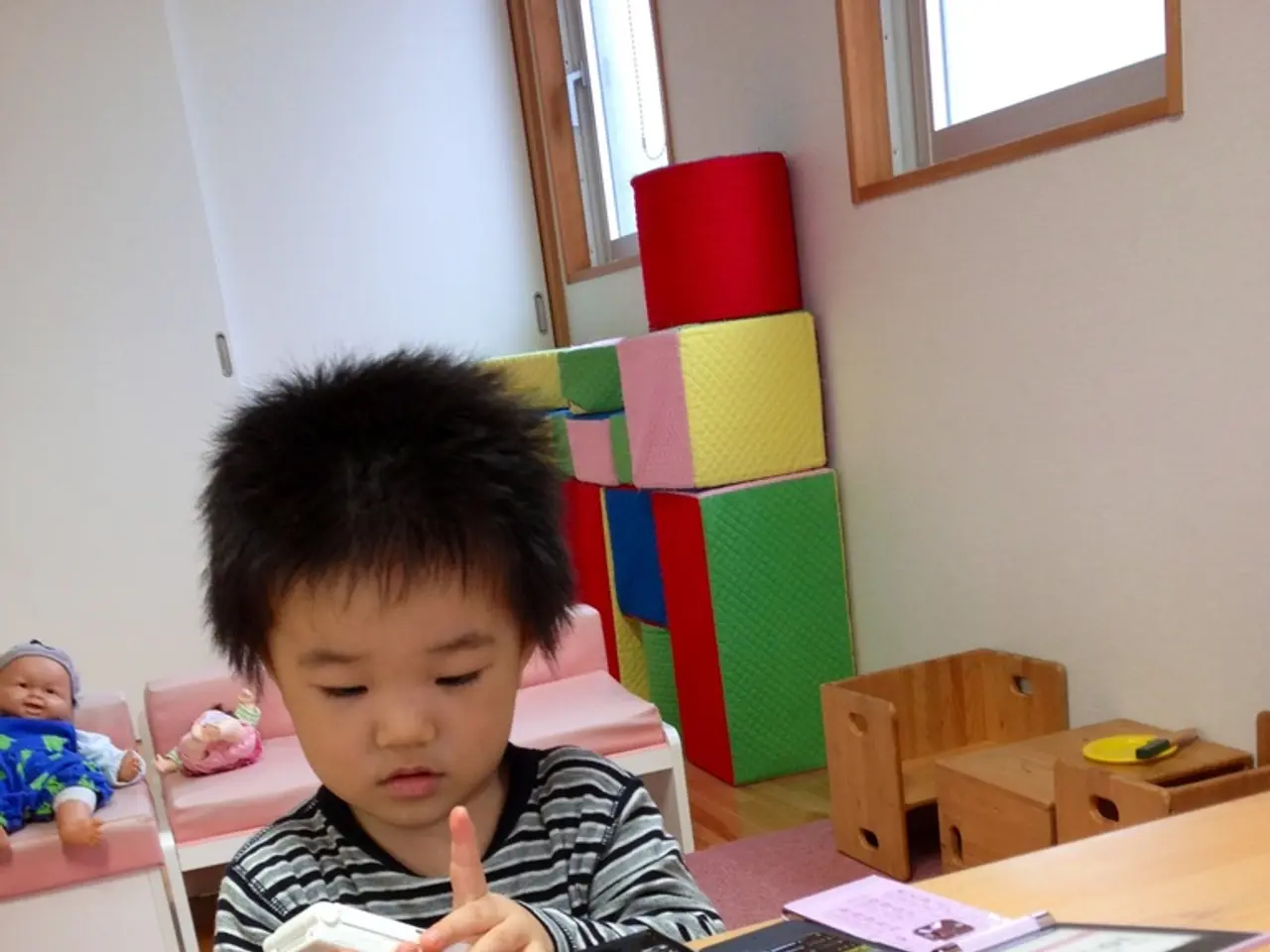School authorities in Zweibrücken implement ban on using mobile phones within school premises.
In the small town of Zweibrücken, Germany, a pioneering educational initiative has been set in motion. The Mannlich Realschule Plus, under the leadership of school principal Markus Meier, has launched a two-year scientific pilot project for a 5th grade class without smartphones. This move comes in response to concerns about the disturbing content discovered on children's phones and their struggles in class.
The project, aptly named the "Phone-free Class," is being scientifically studied by the University of Trier. Researcher Samuel Schmelzer, who is overseeing the study at the University of Kaiserslautern-Landau, Campus Zweibrücken, confirmed that this is the first time a phone-free class has been scientifically monitored in Germany.
Parents at the school have been expressing their concerns about their children's increasing inability to focus in class and some instances of disruption. The "Phone-free Class" project aims to address these issues and more, with the goal of improving concentration, encouraging communication, and strengthening social interaction.
According to Schmelzer, the University of Trier is comparing a 5th grade class without phones to two parallel classes where smartphones are allowed. The comparison focuses on factors such as sleep, mood, concentration, and other aspects. The findings of this study could have significant implications for education, potentially leading to more classes or even entire schools adopting the phone-free model in the future.
Caroline Jantzen, a parent in the phone-free class, hopes that her daughter will learn to communicate face-to-face and build relationships, not through smartphones. Markus Siegrist, a parent representative, shares similar sentiments, expressing relief that his daughter, who was in the 6th grade at the time of the discovery of inappropriate content on the children's phones, is now part of a safer learning environment.
The discovery of disturbing content, such as violent or pornographic videos, on a 10-year-old's phone, was a shocking revelation at the Mannlich Realschule Plus two years ago. Apps like TikTok, with their short, attention-grabbing clips, have been cited as contributors to shorter attention spans in children.
School principal Markus Meier compares leaving a child alone with a smartphone to giving them a weapon. He believes that this initiative is a step towards fostering a healthier and more focused learning environment for the children. The success of the "Phone-free Class" project in Zweibrücken could mark a turning point in the way we approach education in the digital age.
Read also:
- Understanding Hemorrhagic Gastroenteritis: Key Facts
- Stopping Osteoporosis Treatment: Timeline Considerations
- Tobacco industry's suggested changes on a legislative modification are disregarded by health journalists
- Expanded Community Health Involvement by CK Birla Hospitals, Jaipur, Maintained Through Consistent Outreach Programs Across Rajasthan








